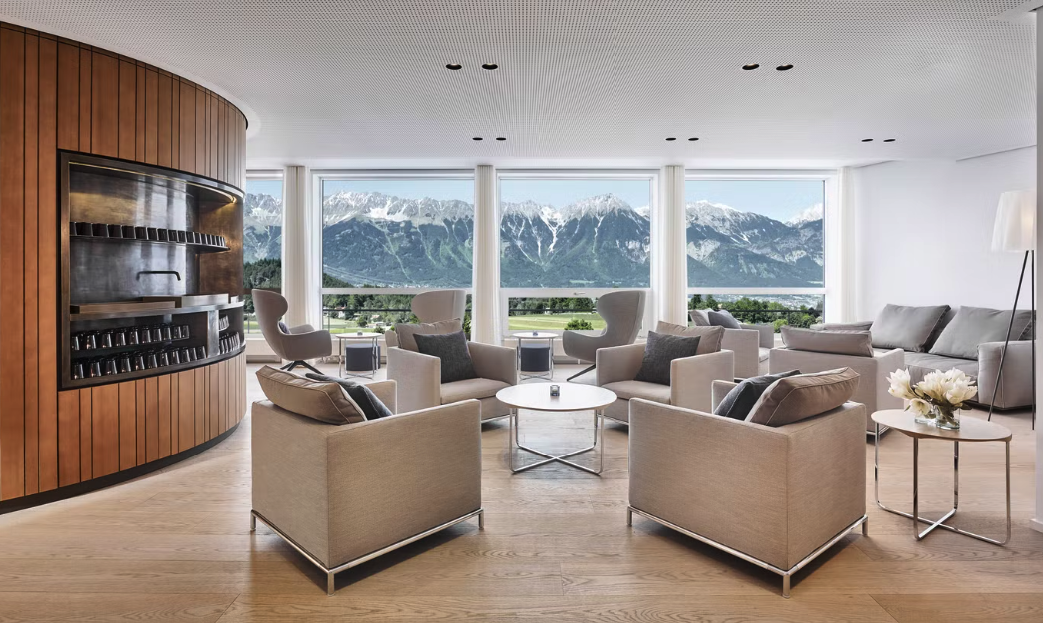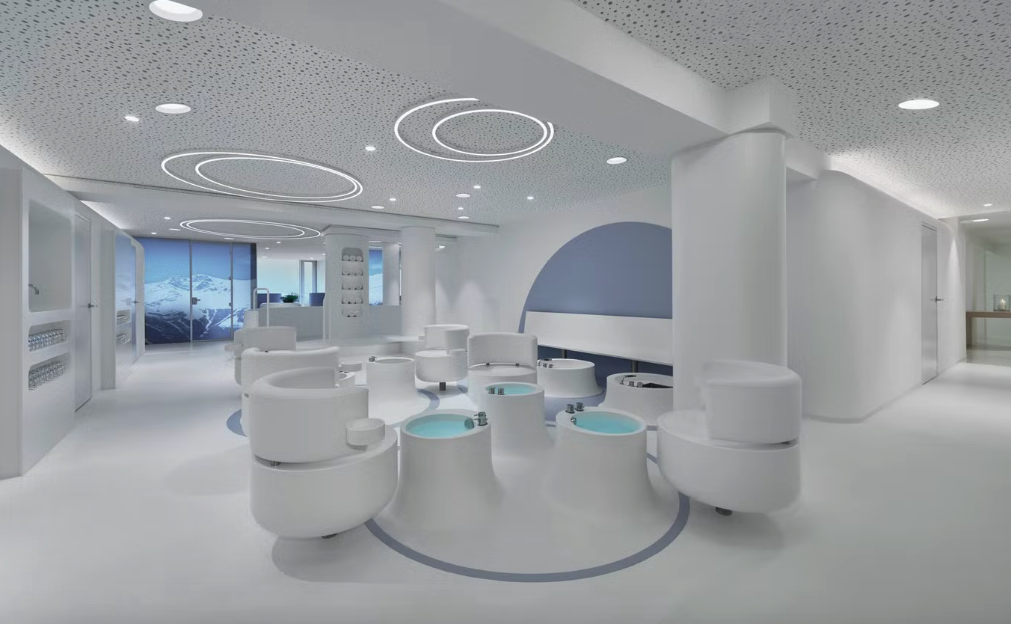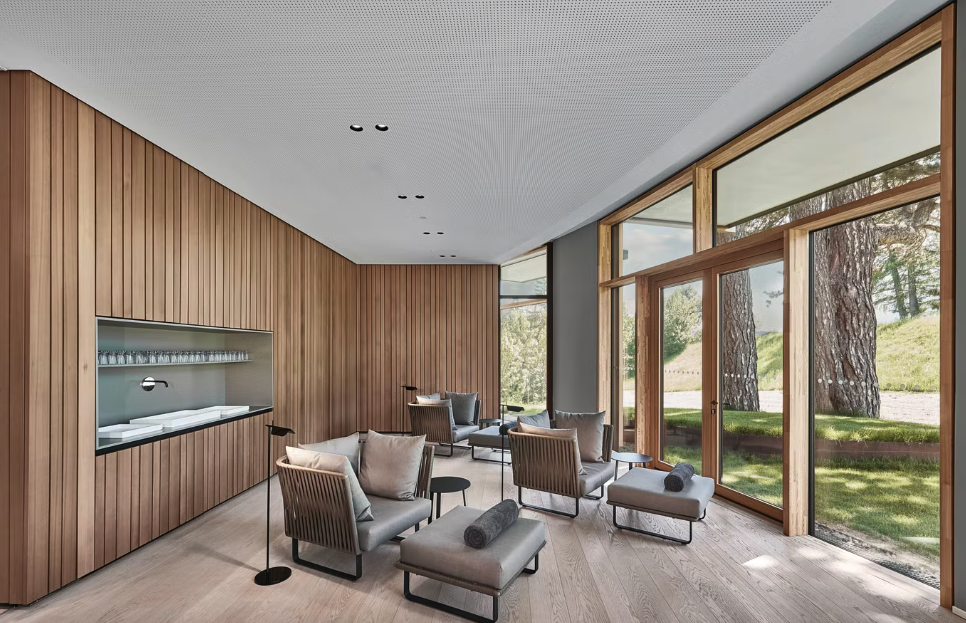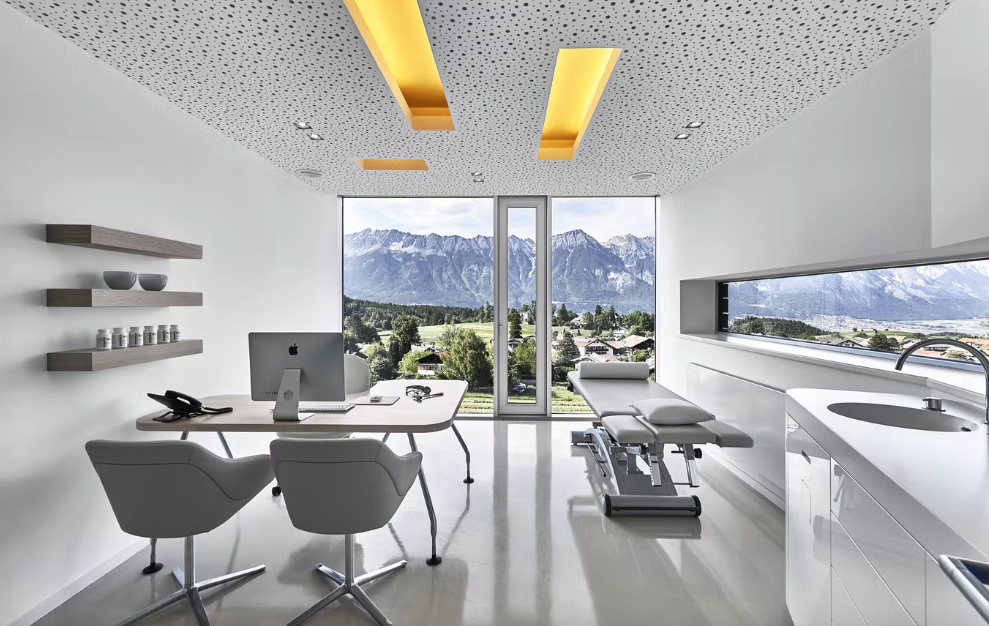[ad_1]

It’s 8.30am and -110°C and I’m stomping around to “Pump Up the Jam”, wearing a bikini, trainers and a woolly hat and gloves – like someone who expected beach and got ski. I love a sharp hit of cold, but cryotherapy tips it into the extreme. The endorphins are flowing but there’s the niggling worry that the heavy door might not open when three minutes are up, leading to certain hypothermia. My skin prickles as I enter the final chamber: there’s something thrilling about being this close to death when every fibre of your being is so alive.
Alive. It has been a while since I properly felt that.

I’m at Lanserhof Lans for a reason. Admittedly the idea of spending a week at one of the world’s most exclusive medical spas in the Austrian Alps, with Innsbruck’s ravishing Nordkette range whooshing up on the horizon, is an easy sell. The mountains and forests are beautiful beyond belief, while the resort is insanely stylish – it’s where celebrities come to detox. But I’m here because my heart is racing, my nervous system is shot and my brain is foggy. I’m here because fatigued has become my new normal, my muscles ache when I carry my two-year-old daughter and exercising feels like dragging my body through quicksand. I’m here because Long Covid won’t release its grip. And because Lanserhof Lans offers a solution: an individually tailored programme specifically targeted at curing post-viral fatigue. At a cost, naturally.
Long Covid has baffled doctors the world over; the long-term impact of the virus is still not fully understood. The symptoms are mysterious and erratic, varying wildly from person to person – from breathlessness to lack of smell, sleep problems and chest pain. Finding a cure is needle-in-a-haystack stuff. Where to begin? Not down the traditional NHS route, where I found nothing but dead-ends. There isn’t the research. There aren’t the resources. Post-viral conditions can’t be treated with a pat on the back, advice to ‘get an early night’ and Ibuprofen. Healing doesn’t happen magically, it requires active steps. Coming to Lanserhof is a big one.
Cryotherapy is just one of the inflammatory-beating, immune-system boosting, energy-balancing treatments on my bespoke programme – put together following consultation and diagnostics with a doctor on arrival. My schedule has treatments that sound positively cosmic. But, the battle-weary cynic in me pipes up, how effective are they really? Is this about medicine or money?
I am about to find out.

I try intravascular laser therapy with vitamin-tanked infusions and Cellgym (hypoxic training) sessions, based on the insights of altitude training, where I wear a mask and the oxygen flow is alternated between low and high to force damaged mitochondria (the little energy powerhouses in the cells) to die off and stimulate the reproduction of healthy ones. I am unknotted with massage and given a detox lymph pack, where I am lathered in fango and algae and left to sweat at 40°C to increase the blood circulation and improve metabolism. Craniosacral therapy turns out to be a revelation – my therapist barely touches me, but I leave feeling lighter, calmer and straighter, as if a great weight has been lifted from my shoulders.
In a holistic approach, there are no overnight miracles. Lanserhof works on the concept that you have to detoxify before the body is able to regenerate and activate its self-healing capacities; and that takes time. A stay here is expensive (often to the tune of five figures), but you could hunt all over the country for a year and you might not find all the experts you can see here under one roof in the course of a rather luxurious couple of weeks.
The core of the Lanserhof concept is detoxification as per the pioneering approach of Austrian physician FX Mayr, who believed that good health stems from the gut. Diagnosis determines the level of fasting, which ranges from hardcore (liquids, perhaps some dry bread) to simple, healthy, perfectly balanced meals. There are no nuts, seeds, fruits or legumes, to give the intestines the chance to rest; just clean proteins and easy-to-digest carbohydrates. Drinking is discouraged 30 minutes before and after meals as it “dilutes the digestive juices”. Epsom salts are taken before breakfast to detoxify. A staggering range of herbal teas is available between meals. Dinner is always soup as it gives the gut time to rest overnight, stimulating the growth hormone described as a ‘fountain of youth’
Mealtimes are designed to be mindful and chewing is important – 30 times minimum, whether you’re eating oatmeal, buckwheat toast with goat’s cheese or a trout fillet. Thirty times, I quickly discover, is a lot. But given the restaurant’s knockout views of the Tyrolean Alps, now lightly dusted with the season’s first snow, I’m happy to linger.
“It’s often underestimated that nutrition plays a big role in Long Covid,” Dr Kathrin Kurz tells me, as we talk one evening. “When the inflammation doesn’t stop, it is exhausting for the body. Its regenerative capacities are overwhelmed. But progress is possible even with this monster. There are often particles of the virus in the gut and the right diet can rinse out pathogens that impair the function of the mitochondria, strengthening the body and bringing the system back into balance.”

Balance here is a beautiful thing. I wake up in the silkiest of sheets in my spa suite and sip tea on my private roof terrace as a pink dawn breaks over the Alps. I float through rooms where vast windows, a palette of pure whites and frosty blues, and curving wood panels echo the contours and colours of the mountains. I end my day early with a sauna, quiet time by the fireplace in the spa and a float in the saltwater hydrotherapy pool, gazing up to peaks, pines and the glitter of stars. I’m in bed by 9pm.
Besides therapies, there is a full programme of activities. And as the days progress and the energy slowly trickles back, I find that I am once again a joiner-inner. I attend lectures on nutrition and cookery classes. I feel a massive shift during qi gong, with its gentle, fluid movements and deep breathwork, and neuro athletics, with more breathwork and motion subtly working on the vagus nerve. I do yoga, Nordic walking and chakra-cleansing singing bowl meditation.
Around day five, I notice that my skin is clearer, my posture improved and that I am eating, breathing and thinking differently. I can feel energy pulsing in my body again. I go for a walk in the forest the day before I am set to leave. It’s the kind of crisp winter day that leaves you high, with snapshot views of the Alps and golden light filtering through the treetops. The walk turns to a trot, the trot to a run – over root and puddle and up, up towards the mountains. I am running. I am bloody running.

And when I wake up the next day, nothing hurts. There’s no backlash fatigue. I meet Dr Kurz for a final medical examination. She asks me how I am and I tell her I feel good. And for the first time in a long time, I mean it.
Travel essentials
The Lanserhof Lans two-week long Covid package costs from €4,310 (£3,704). Accommodation is calculated separately, starting at €365 (£314) per night for a single room.
More like this
Grand Resort, Bad Ragaz, Switzerland
Feel the reenergising effects of thermal water at this five-star resort in the Swiss Alps, with a hydrotherapy-focused medical spa and state-of-the-art medical expertise.
Longevity Health & Wellness, Portugal
In Alvor on the Algarve, Longevity Health & Wellness has views of the crashing Atlantic. Nutrition, detoxing, fitness and pain medicine and mind and energy rebalancing form an integral part of bespoke programmes.
Chiva Som, Thailand
This pioneering health and wellness resort in gorgeously tropical Hua Hin achieves incredible results with its holistic approach, with a team of experts ranging from doctors to healers and physiotherapists.
[ad_2]

